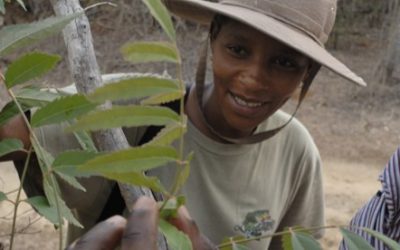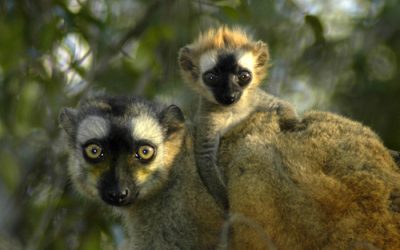Just four days of TBA training in Cambridge has transformed 15 African conservation scientists from a group of strangers lacking the know-how to get their research into print, into a supportive network with new skills, confidence and targets.
“Publishing matters,” said TBA Director Rosie Trevelyan, opening the course designed to build the tools for successful communication. “Research work is incomplete unless the results are disseminated to the wider scientific community. It gives them a chance to find out about your work. That way, people are more likely to be able to build on it, rather than reinvent the wheel and duplicate the research.”
And yet scientists who do good research often don’t have the skills to get their findings into print so that they can influence a wider audience. Notably, publication rates of scientists from African countries are low compared to the amount of research they do. They face hurdles such as language barriers, poor writing and structuring, and lack of knowledge about identifying relevant titles.
To help bridge this gap, Rosie Trevelyan and Paul Craze, editor of the well-known journal TREE (Trends in Ecology and Evolution), led the intense programme of structured skills building, discussion and practical exercises.
A key feature of TBA’s approach to learning is for the participants to share their experiences, goals and challenges, creating trust and understanding from the outset. In one of the most animated sessions of the course, peer review took on a whole new meaning as pairs scrutinised each others’ manuscripts.
Better equipped to publish
Zambian Forestry Officer, Freddie Sayi Siangulube, who has spent eight years researching how local communities respond to new government policies (such as REDD+), said the course went beyond his expectations. “This course has really equipped me in terms of organising my work for publication. I have an awful lot of data, but bringing this information into the published domain has been difficult.” he said.
“When a colleague on this course looked at my manuscript, that was really interesting. We even had an idea that we might be able to co-publish because we found common issues in our areas of research.”
Bernard Cheruiyot Soi lectures in wildlife management at Kenya’s Chuka University and is doing research on threatened endemic coastal birds. He says he is motivated to publish his work as well as to raise standards in communicating research with his colleagues and students.
“This course has opened my mind on the right way to go about publishing,” he said. “This has been a problem, but now I am ready to sit down and write about my work. This will now be possible, and I have the confidence to publish by August.”
Lovanomenjanahary Marline is the only Malagasy research student working on her country’s native bryophytes; a vast family of plants which are key players in the ecosystem but not well understood. As well as the challenge of writing in English, she knows that bryophytes – however important – face a tough battle for attention alongside Madagascar’s iconic species.
Lova says the TBA course has given her new tactics for success. “I have a language problem with communication because I write in English as I would write in French. The course gave a lot of practical advice for this, so now I understand what it means and why it helps to be concise. I also know that this is something I need to practice.”
She heads for home with new ideas for getting her work into print. “This course has taught me a lot about how to make a headline; something that will attract peoples’ attention.” She said.
And – along with the other participants – Lova now plans to target new journals. “What I am also taking home from this week is that it is possible to write for a wider audience, even though I am not working on something with mass appeal,” she said. “Most of the time I have been trying to get my work into bryophyte specialist journals. Now I am aiming for higher-ranking journals, as I know that my writing doesn’t always have to be focussed just on a small specialist community.’
New targets
At the end of the course, all 15 participants – from eight countries – set their own targets and deadlines, which they then shared with each other. What’s more, they decided to extend a group social media network, set up to connect them just before the course, to support each other in meeting their targets.
One of the signatures of TBA courses is that they forge networks that last well beyond the training. “Participants tell us belonging to this network is a new experience for them and will be really useful when they share their work with each other,” said Rosie Trevelyan.
“I think it’s a really good opportunity,” said Adedoja Opeyemi, a Nigerian ecologist researching how land use impacts pollinator networks. “Other participants may not be doing work in your area but their input will still be really useful after the course.”
TBA capacity building usually takes place in Africa, where there is huge demand for tailored training for conservationists. However, this course was held at Trinity College in Cambridge thanks to generous support of the Trustees of the Progress Foundation. The TBA was delighted that Roger Pilgrim and Nadine Majaro, visited the course to meet participants and see the training in action.
The course was timed to give all participants a chance to attend the 2017 Student Conference in Conservation Science, also held in Cambridge, which immediately followed the course.
All photographs: ©SamOwenPhotography







